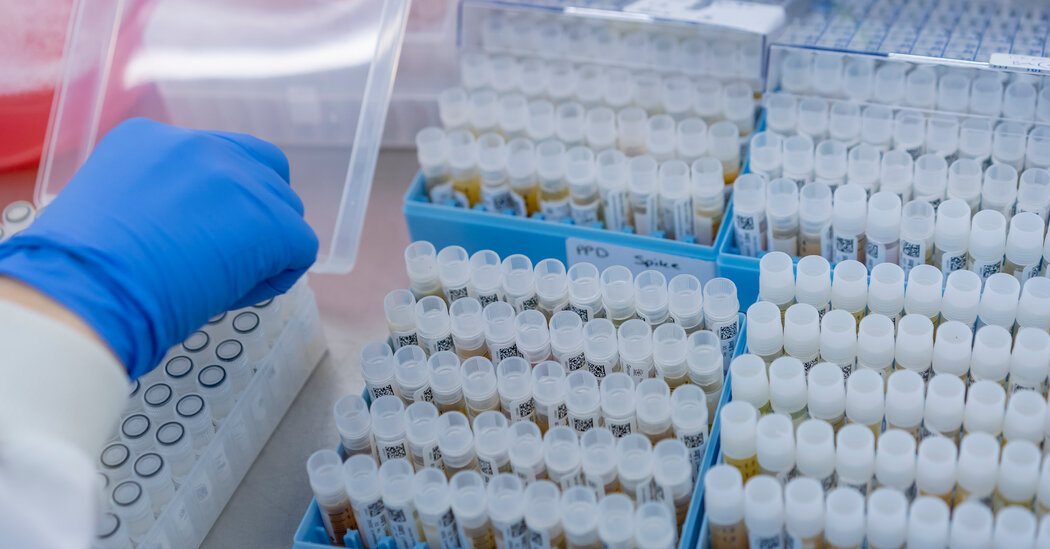Bigger problems soon surfaced.
An AstraZeneca executive told Reuters on Monday that the company had not intended for any participants to receive the half dose. British researchers running the trial there had meant to give the full dose initially to volunteers, but a miscalculation meant they were mistakenly given only a half dose. The executive, Menelas Pangalos, described the error as “serendipity,” allowing researchers to stumble onto a more promising dosing regimen.
To many outside experts, that undercut the credibility of the results because the closely calibrated clinical trials had not been designed to test how well a half-strength initial dose worked.
The company’s initial announcement didn’t mention the accidental nature of the discovery.
In the statement attributed to Oxford, Ms. Meixell, the AstraZeneca spokeswoman, said the error stemmed from an issue, which has since been fixed, with how some of the vaccine doses were manufactured.
Then, on Tuesday, Moncef Slaoui, the head of Operation Warp Speed, the U.S. initiative to fast-track coronavirus vaccines, noted another limitation in AstraZeneca’s data. On a call with reporters, he suggested that the participants who received the half-strength initial dose had been 55 years old or younger. Ms. Meixell declined to say whether that was the case, noting that the data would be published soon in a peer-reviewed journal.
If the initial half-strength dose wasn’t tested in older participants, who are especially vulnerable to Covid-19, it would undermine AstraZeneca’s case to regulators that the vaccine should be authorized for emergency use.
The Road to a Coronavirus Vaccine
Words to Know About Vaccines
Confused by the all technical terms used to describe how vaccines work and are investigated? Let us help:
-
- Adverse event: A health problem that crops up in volunteers in a clinical trial of a vaccine or a drug. An adverse event isn’t always caused by the treatment tested in the trial.
- Antibody: A protein produced by the immune system that can attach to a pathogen such as the coronavirus and stop it from infecting cells.
- Approval, licensure and emergency use authorization: Drugs, vaccines and medical devices cannot be sold in the United States without gaining approval from the Food and Drug Administration, also known as licensure. After a company submits the results of clinical trials to the F.D.A. for consideration, the agency decides whether the product is safe and effective, a process that generally takes many months. If the country is facing an emergency — like a pandemic — a company may apply instead for an emergency use authorization, which can be granted considerably faster.
- Background rate: How often a health problem, known as an adverse event, arises in the general population. To determine if a vaccine or a drug is safe, researchers compare the rate of adverse events in a trial to the background rate.
- Efficacy: A measurement of how effective a treatment was in a clinical trial. To test a coronavirus vaccine, for instance, researchers compare how many people in the vaccinated and placebo groups get Covid-19. The real-world effectiveness of a vaccine may turn out to be different from its efficacy in a trial.
- Phase 1, 2, and 3 trials: Clinical trials typically take place in three stages. Phase 1 trials usually involve a few dozen people and are designed to observe whether a vaccine or drug is safe. Phase 2 trials, involving hundreds of people, allow researchers to try out different doses and gather more measurements about the vaccine’s effects on the immune system. Phase 3 trials, involving thousands or tens of thousands of volunteers, determine the safety and efficacy of the vaccine or drug by waiting to see how many people are protected from the disease it’s designed to fight.
- Placebo: A substance that has no therapeutic effect, often used in a clinical trial. To see if a vaccine can prevent Covid-19, for example, researchers may inject the vaccine into half of their volunteers, while the other half get a placebo of salt water. They can then compare how many people in each group get infected.
- Post-market surveillance: The monitoring that takes place after a vaccine or drug has been approved and is regularly prescribed by doctors. This surveillance typically confirms that the treatment is safe. On rare occasions, it detects side effects in certain groups of people that were missed during clinical trials.
- Preclinical research: Studies that take place before the start of a clinical trial, typically involving experiments where a treatment is tested on cells or in animals.
- Viral vector vaccines: A type of vaccine that uses a harmless virus to chauffeur immune-system-stimulating ingredients into the human body. Viral vectors are used in several experimental Covid-19 vaccines, including those developed by AstraZeneca and Johnson & Johnson. Both of these companies are using a common cold virus called an adenovirus as their vector. The adenovirus carries coronavirus genes.
- Trial protocol: A series of procedures to be carried out during a clinical trial.
Stephanie Caccomo, a spokeswoman for the Food and Drug Administration, declined to comment on whether the dosing error would hurt the vaccine’s chances of being authorized. The F.D.A. has said it expects vaccines to be at least 50 percent effective in preventing or reducing the severity of the disease, a bar that the vaccine appears to have cleared even in the group that got the two full doses.
AstraZeneca’s shares have fallen about 5 percent this week, while broader stock indexes have climbed to record highs. Investors seem to be disappointed with the murky results, especially compared with the much clearer data released by two of AstraZeneca’s chief rivals in the race for a coronavirus vaccine.
[ad_2]
Source link


